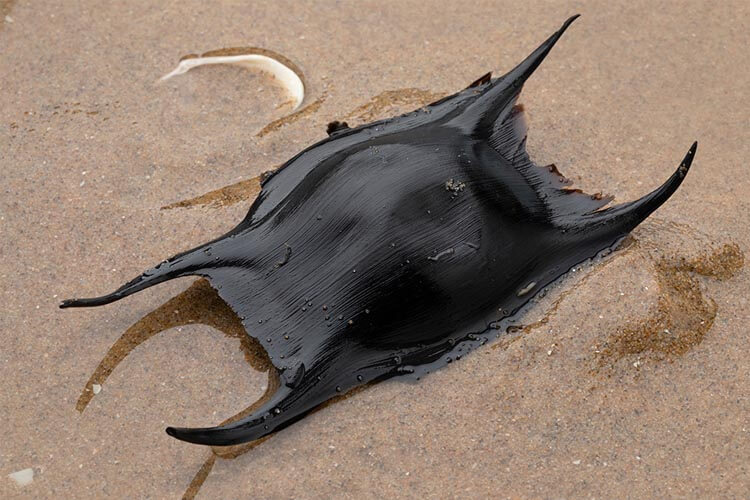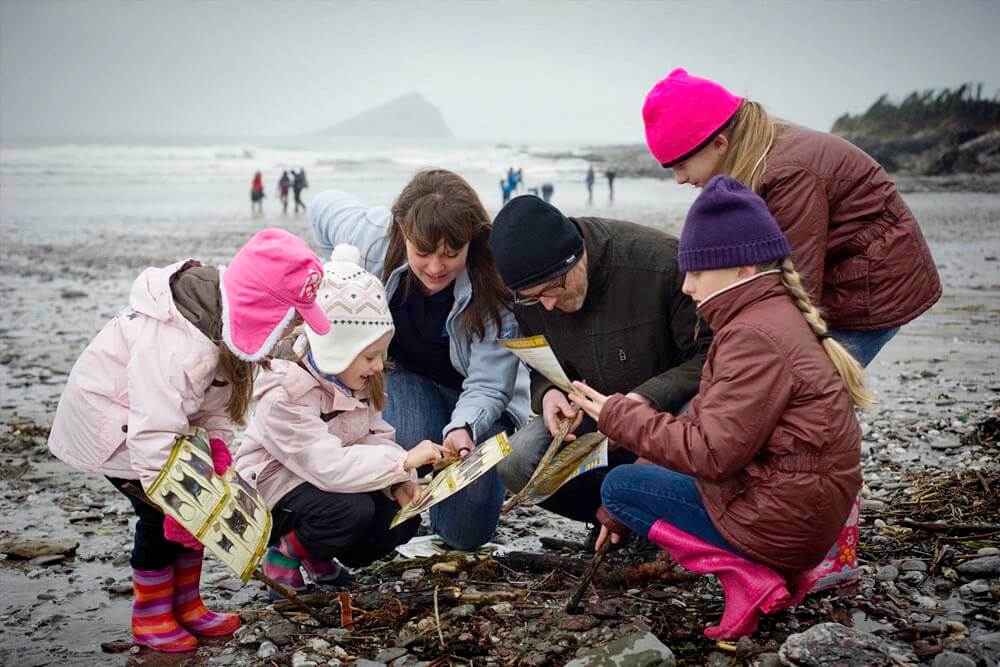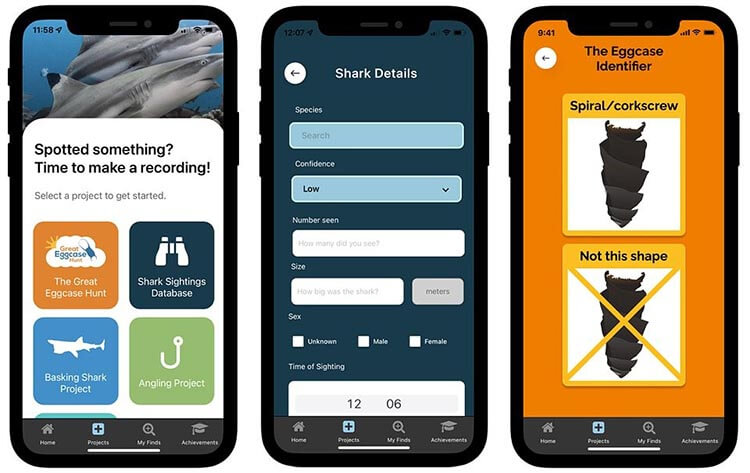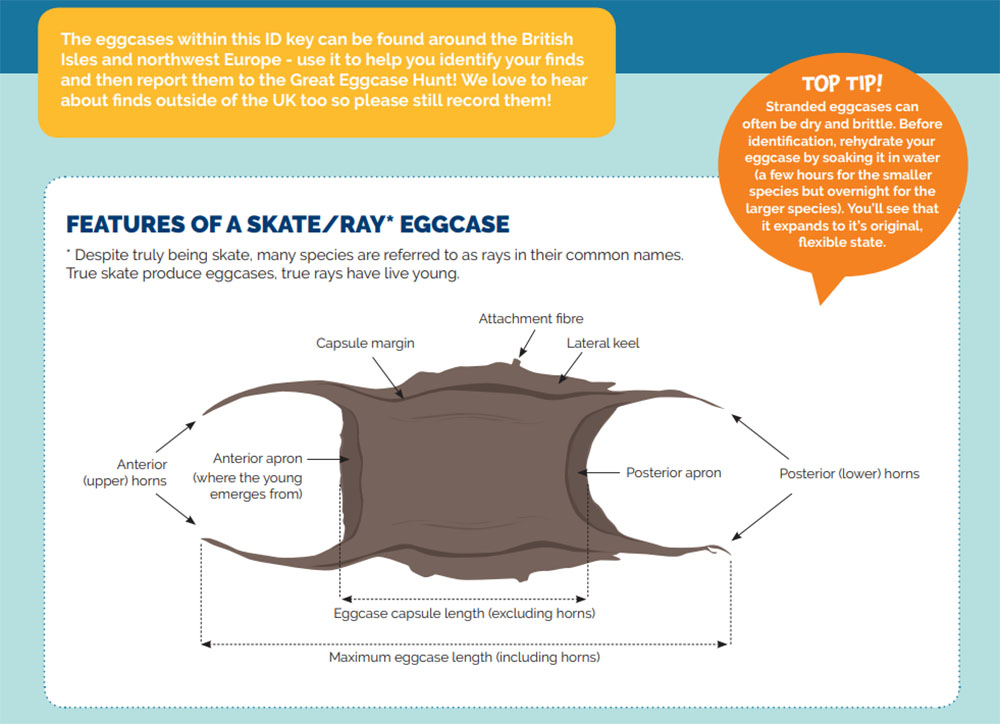
The Shark Trust’s Great Eggcase Hunt is returning for 2023 this Easter weekend, and citizen scientists across the globe are invited to participate to assist with shark and skate conservation.
2023 marks the 20th anniversary since the Shark Trust’s Great Eggcase Hunt began. To celebrate the milestone, the Shark Trust has launched a new app that features the Great Eggcase Hunt along with four other citizen science projects to take part in.
Through the use of the new app, anyone with an interest in sharks, skates and rays can contribute to valuable research by submitting eggcase finds or shark sightings – while unlocking collectable shark cards as finds accumulate in the app’s logbook.
More from the Shark Trust

‘We’re really excited to be celebrating the Great Eggcase Hunt’s 20th anniversary this year!,’ said the Shark Trust’s Senior Conservation Officer, Cat Gordon. ‘The project has evolved so much since it first began back in 2003. We’re now well on our way to receiving half a million eggcase records.’
New finds from around the world are regularly being added to the ever-growing database. The project now has an impressive 440,000 eggcases recorded from a total of 49 species documented across 30 countries.
‘One eggcase find may not seem that significant on its own, but when all of this information is brought together it can help us better understand species presence and diversity,’ said Cat. ‘It’s also a great way to get involved in shark conservation, and of course, it’s fun – and not to mention competitive!’
Last year’s Great Eggcase Hunt saw over 51,600 eggcases recorded in total – 7,560 of which were recorded during the Easter event. 2023 appears to have got off to a flying start, with 22,400 eggcases already recorded since January. It looks set to be a bumper year.

A group fo friends find & photograph an eggcase © sghaywood photography
What’s in an eggcase?
Some sharks, and all true skates, reproduce by laying eggs. These are surrounded by a tough leathery capsule that protects the embryo as it develops inside. Small slits in the eggcase allow fresh oxygenated seawater in, and let waste out, while a yolk sac provides plenty of nutrition.
After several months (although this will vary depending on species) they are ready to hatch. The top of the eggcase will open and a fully formed shark or skate will emerge and be completely independent, having to fend for itself. Once empty, the eggcases – also known as ‘mermaid’s purses’ – often wash up on the beach.
Getting involved in the Great Eggcase Hunt does not require being part of an organised event, although it’s work checking with local marine centres or aquariums to see if there is one running in your area. All that is required to record eggcases is taking a look around the nearest beach to see what you can find.
The best places to search are in the strandline where seaweed and debris washes up, and in sand dunes at the back of the beach as they often get trapped in the grass.
The Shark Trust has developed some free-to-download resources to assist with identifying which species the eggcases come from, after which sightings can be logged on the Shark Trust’s Recording Hub, or in the new citizen science app.
‘The Great Eggcase Hunt makes for a fantastic family day out at the beach,’ said Paul Cox, Shark Trust MD. ‘Once you spot your first one, you’ll find it hard to stop! So get involved with shark conservation and have fun too!”

Eggcase hunting tips
- Respect wildlife and habitats by following the Seashore Code and don’t take live animals home with you
- You can usually find egg cases amongst the seaweed that makes up the strandline. They blend in really well which means they can be difficult to spot at first, so keep your eyes peeled
- If possible, use a stick to rummage through the seaweed to avoid any nasty surprises
- When egg cases dry out they’re very light and can get blown to the back of the beach. They also get trapped in grasses on sand dunes. So these are good locations to search.
- Egg cases will wash up throughout the year. They may have freshly hatched, or been on the seabed for some time before being dislodged.
- After stormy weather has passed is prime egg case hunting time. Lots of seaweed and debris will have been washed up on the beach – this is great to search in
- Check to make sure it’s definitely an empty egg case and nothing is inside.
- If a live embryo is inside, pop the egg case back in the sea and try to weigh it down so it doesn’t wash ashore again.
- Empty egg cases have no secondary purpose as some shells do for hermit crabs. They also don’t break down to form sand.
For more information about the Great Eggcase Hunt, visit www.sharktrust.org/great-eggcase-hunt




